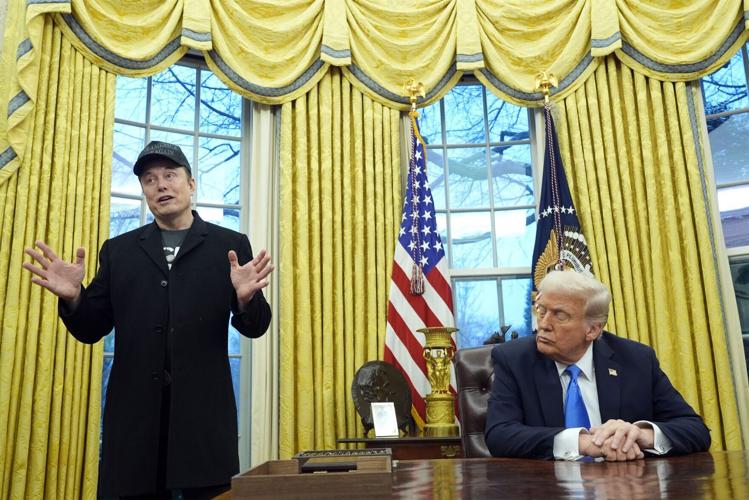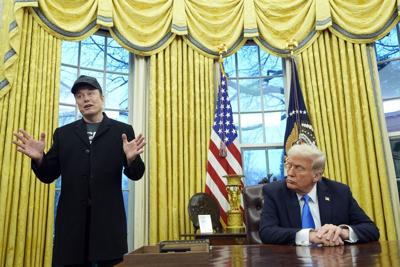For the first time since Lyndon Johnson’s Great Society, the size, scope and operations of government have become hot topics. Those who support Elon Musk’s �ǰ���, and those who detest it, have moved these issues — long seen as tedious and boring — onto the front burners of a scorching public debate.
The fight over the size and cost of government is something America has needed for decades, but to best serve the public interest, both sides need to put country above politics.
So far, that’s not happening. Like everything else, it’s become part of a partisan death match.
Government reform, when done, must be done right — within the law and in logical sequence. The goal must be competent, honest management of taxpayer dollars.
President Donald Trump and Musk have made the first moves. They now need to level with the American people that after the cuts are made, efficiency and accountability will require painstaking reorganization and management oversight. If they keep moving too fast and loose — disrupting operations, firing people indiscriminately and then rehiring some of them — the benefits for taxpayers won’t stick. It could kill the opportunity to really make government smaller and better.

Ron Faucheux
Recently, a friend mused to me that Musk, by putting too many spinning tops on the table at one time, risks losing what Trump wants most: control. When one top spins off the table, others will follow, and then what? More court battles and chaos?
Don’t forget that most of DOGE’s proposed cuts still have to get through Congress. Will the congressional appropriations process reflect the administration's cost-cutting agenda? What happens when senators and representatives start begging to save funding for their states and districts?
What’s the path forward?
President Jimmy Carter and Vice President Al Gore tried tackling sluggish bureaucracy in their day but with limited success. There wasn’t enough public pressure to counter vested interests that were standing guard over the status quo. Their fellow Democrats were afraid of offending public employee unions, and Republicans were afraid of cutting programs that constituents and contributors wanted.
One of the few members of Congress who actually did something about balancing the budget and cutting wasteful spending was Republican former of Louisiana, who chaired the House Appropriations Committee in the 1990s.
As the party of activist government, why haven’t Democrats done more to make government work better? Why can’t they identify bureaucracies that need eliminating, reorganizing or modernizing? When actual boondoggles are uncovered, and the numbers check out, why can’t Democrats join DOGE in doing away with them?
And as the party of less government, why didn’t other Republicans make government operations a bigger part of their agenda? Why didn't they go into each department and look under the hood? They’re now rubber-stamping DOGE’s efforts without questioning what will work and what won’t. Their job should be to discipline the process, not let it get out of hand.
A pox on both their houses.
The Trump administration erred in abruptly firing 18 inspectors general. Presidents can lawfully fire inspectors if they provide Congress a 30-day notice and explain the reasons for doing so, but the administration didn’t follow that procedure. Trump could have saved a lot of trouble, and prevented legal wrangles, by simply doing so. It would also have given the DOGE process more legitimacy.
Inspectors general, by the way, investigate and audit federal agencies, and hunt for waste, fraud and abuse. The administration should not have fired any of them — much less all of them — without examining the job each was doing. These watchdogs can provide much-needed independent, nonpartisan monitoring of federal spending. The good ones should have been empowered to do more, not thrown out.
When cutting jobs, remember that bath water isn’t worth saving, but babies are.
The big question: What will each federal department look like after DOGE is finished? Will they be streamlined and efficient, smaller and more innovative? Or, will they be crippled and dysfunctional?
Let’s face it: Plenty of agencies should be abolished and plenty of programs, designed to pursue ideological agendas, are bound to be eliminated when party control switches. But a poorly managed agency that has an essential function needs to be fixed, not ravaged.
Rubble without results isn’t the answer.



